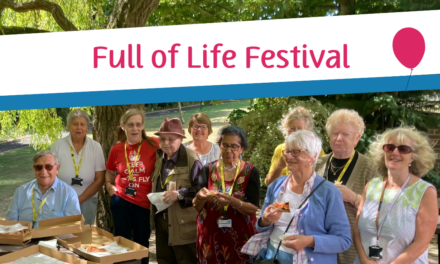Will you be one of the many people who set themselves a New Year’s resolution for 2022? A new year brings the opportunity for a fresh start, a clean slate, and the chance to create a new personal goal. But where did the tradition come from, and how can we make sure we succeed?
The tradition of making a New Year’s resolution started 4,000 years ago in Ancient Babylon, modern day Iraq. The Babylonians made promises to their gods at the start of each year that they would return borrowed objects and pay their debts. In doing so they hoped to win the gods’ favour.
A peacock vow
In the UK it appears to date back to the Middle Ages (1066-1485) when medieval knights took a “peacock vow” at the end of the Christmas season each year to re-affirm their commitment to chivalry. They made the pledge by placing their hands on a live or roasted peacock.
And in recent times we’ve seen the emergence of smaller bite-size resolution challenges often attached to fund-raising. Have you tried quitting the booze in Dry January, or smoking in Stoptober?
So people have been making (and breaking) new year resolutions for thousands of years. YouGov studies showed 27 per cent of people in the UK planned to set themselves resolutions in 2020. And if you did so, and did not succeed, you are not alone. Only 26 per cent of people kept them all.
More exercise
As for this year the most popular resolutions in 2021, YouGov say, were to exercise more (53 per cent) and lose weight (48 per cent). Unsurprisingly given coronavirus lockdowns and restrictions 39 per cent of resolutions also pledged to eat healthier. And in another reflection on how the pandemic has affected us, the biggest increase was the promise the spend more time with family – up 11 per cent on 2020 at 22 per cent.

But don’t be discouraged by how tough it can be. We’ve scoured the internet to come up with some top tips to help you if you’re determined to do something differently or achieve something this year. Plus, if your resolution is about being healthier, there’s also help available from our own public health professionals. From all the advice out there, these are the tips we think make most sense:
Start small
Don’t be over ambitious and don’t set the bar too high. Rome was not built in a day. Don’t set yourself too many goals and make sure that whatever you set as a target is actually realistic and achievable. Make just one resolution.
Plan ahead
Don’t leave it until the final chime of Big Ben on 31 December to set your resolution. Think about it, plan ahead and prepare.
Make it measurable
The more vague your resolution, the more likely you will fail. Don’t resolve to “lose weight”, but to “lose a stone”. Instead of “go to the gym more”, set yourself a target of going to the gym twice a week. Specific targets make it easier to focus on success.
Talk about it
If your family and friends know what you are trying to achieve they should be supportive, and help you on the way. If you have a weight-loss goal, thoughtful friends won’t lead you astray with cakes and treats!
Get professional support
You are not alone and there is help available. For example, through our One You East Sussex* service our public health professionals can help you make lifestyle changes to improve your health. This includes help to stop smoking, lose weight, and drink less. We provide tools, motivational support and encouragement every step of the way, to help improve your health right away.
Set milestones and track your progress
Keep track of each small success. Short-term goals are easier to keep, and each small accomplishment will help keep you motivated. For example, instead of focusing on losing 30 pounds, focus on losing the first five. Reward yourself for each five pounds lost (but maybe not with cake).
Don’t give up
Don’t make your resolution an all-or-nothing failure or success trial. If you slip up, just reset and start again. Don’t give up, don’t be disheartened, and don’t use one setback as an excuse for quitting. And remember the words of Henry Ford: “Failure is simply an opportunity to begin again.”
*One You East Sussex is a service commissioned by East Sussex Public Health (East Sussex County Council) as part of our whole systems transformation programme East Sussex Better Together; and as part of Connecting4You in the west of the county. The service offers a range of evidence-based support to help people make changes to their lifestyle to improve their health. This includes help to stop smoking, lose weight, and targeted NHS Health Checks for people least likely to access their check at their GP surgery. For more information or to get support visit One You East Sussex.




